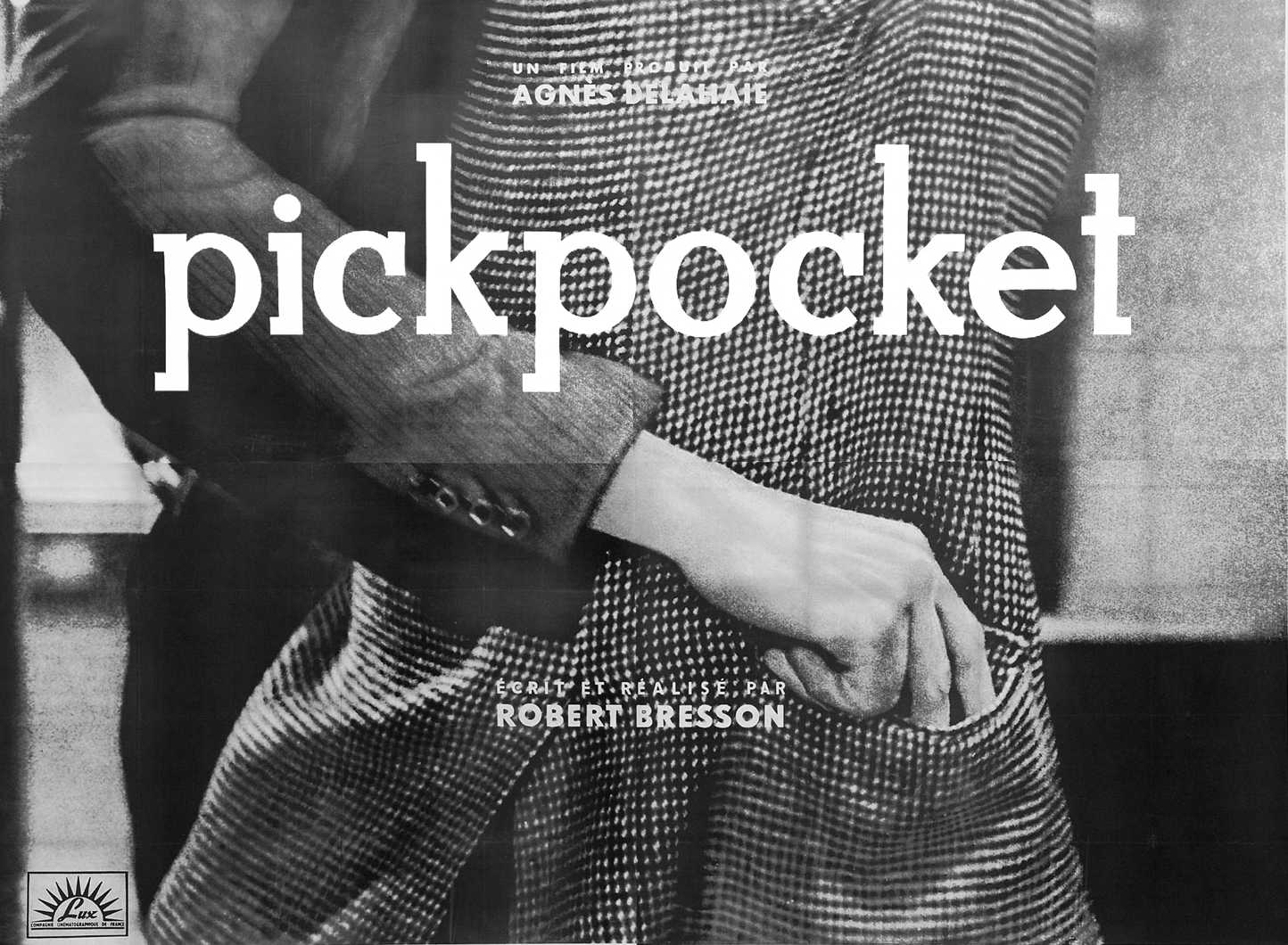

In a terrifically charming documentary, The Models of Pickpocket, LaSalle and his co-stars describe being asked to repeat lines over and again until they became almost senseless. Rewatching Pickpocket, I felt I was seeing the invention of a new type of cinema, one much copied but rarely equalled.īresson is most famous perhaps for his ascetic style, and notably his use of not actors but what he calls ‘models’, non-professionals whom he coached to deliver lines with the minimum of affect possible. The best films – the greatest films – are discoveries of the medium itself. He is picked up by a gang of thieves (including one played by real-life pickpocket Henri Kassagi, who coached the cast in sleight of hand and went on to become a stage magician) Bresson follows their elegantly choreographed routines through banks, cafés and station concourses with a combination of sweeping tracking shots and quick-cut close-ups, at times generating a suspense to rival Hitchcock. Time and again we watch the face of Michel, deadpan yet wary, as he calculates the best moment to strike. His camera lingers on a handbag, left open a wallet, slipped from a jacket pocket a watchstrap, gently unhooked. Bresson describes it as a ‘film of hands, of objects, of looks’. With his long, hangdog face, intense gaze and tired but tidy suit, Martin LaSalle (who bears a striking resemblance to Henry Fonda) seems the epitome of the Left Bank intellectual.
Child pickpocket movie series#
Godard is right to reference Bresson’s quintessential Frenchness, too: the film drips Gallic existentialism, with Michel’s thefts functioning as a series of actes gratuits of the kind described by the likes of Gide, Sartre and Camus. Michel (Martin LaSalle) carries around a copy of a book about the 18th-century Irish pickpocket-adventurer George Barrington and engages in intense ideological debates with the policeman surveilling him (Jean Pélégri) about whether genius serves as a justification for criminal acts. The comparison with Dostoevsky feels particularly apposite to Bresson’s 1959 film Pickpocket: there’s something of Crime and Punishment in this tale of a middleclass young man moved to petty theft as a kind of intellectual game. But then this is the man of whom Jean-Luc Godard once wrote, ‘He is the French cinema, as Dostoevsky is the Russian novel and Mozart is German music.’ Impressive, considering that Bresson only made 13 films over the course of his whole career. In Sight and Sound’ s 2012 poll of the greatest films ever made, Robert Bresson had the highest number of any filmmaker listed: seven out of 250, three of them in the top 100. A riveting morality tale reminiscent of both Hitchcock and Dostoevsky, it’s imbued with the director’s distinctive rigour. Intentionally not a thriller but certainly not without suspense, Robert Bresson’s film is profoundly ambivalent about Michel’s ethics, sexuality (he seems aroused by his thefts), his capacity for compassion and his courtship of suspicion in others. He spouts vague theories about exceptional individuals being above the law – but is he lost in another world, as Jeanne, a young woman he half-heartedly befriends, tells him? He sees the laws absurd and is on the verge of discovering the truth.Uncomplainingly jobless in late-50s Paris, Michel starts stealing from strangers, for reasons unclear even to himself. Soon after that, Michel loses his mother. Michel finds a letter arrived from Jeanne about his mother’s health condition. After performing some petty picks, he joins another two master pickpocketers and learns several tricks. Michel is not unapologetic about his acts, he is just helpless. Jeanne (Marika Green), his mother’s neighbor, requests him to stay with his mother, but he does not get convinced. He does not enjoy staying with his ailing mother in the apartment instead, he opts to stay in a hotel.

He is unconventional, clueless, and it is not very easy to decipher his characteristics.
Child pickpocket movie professional#
The film does not star any professional actors like any of the New wave Cinema, Martin LaSalle plays the title role, Michel, a circumstance-torn youngster who had no other option except looting for his survival. Seven years after the end of Italian neo-realism, Ten years after the Vittorio De Sica’s Bicycle Thieves. The film got released in France in the year 1959 during the early years of the French New wave Cinema.

It is a 60-year-old cult classic that defines (more or less) the science of Robert Bresson. Pickpocket is the first Bresson film I had watched completely. I had just found Bresson, I do not have the experience of being a Bresson fan.


 0 kommentar(er)
0 kommentar(er)
